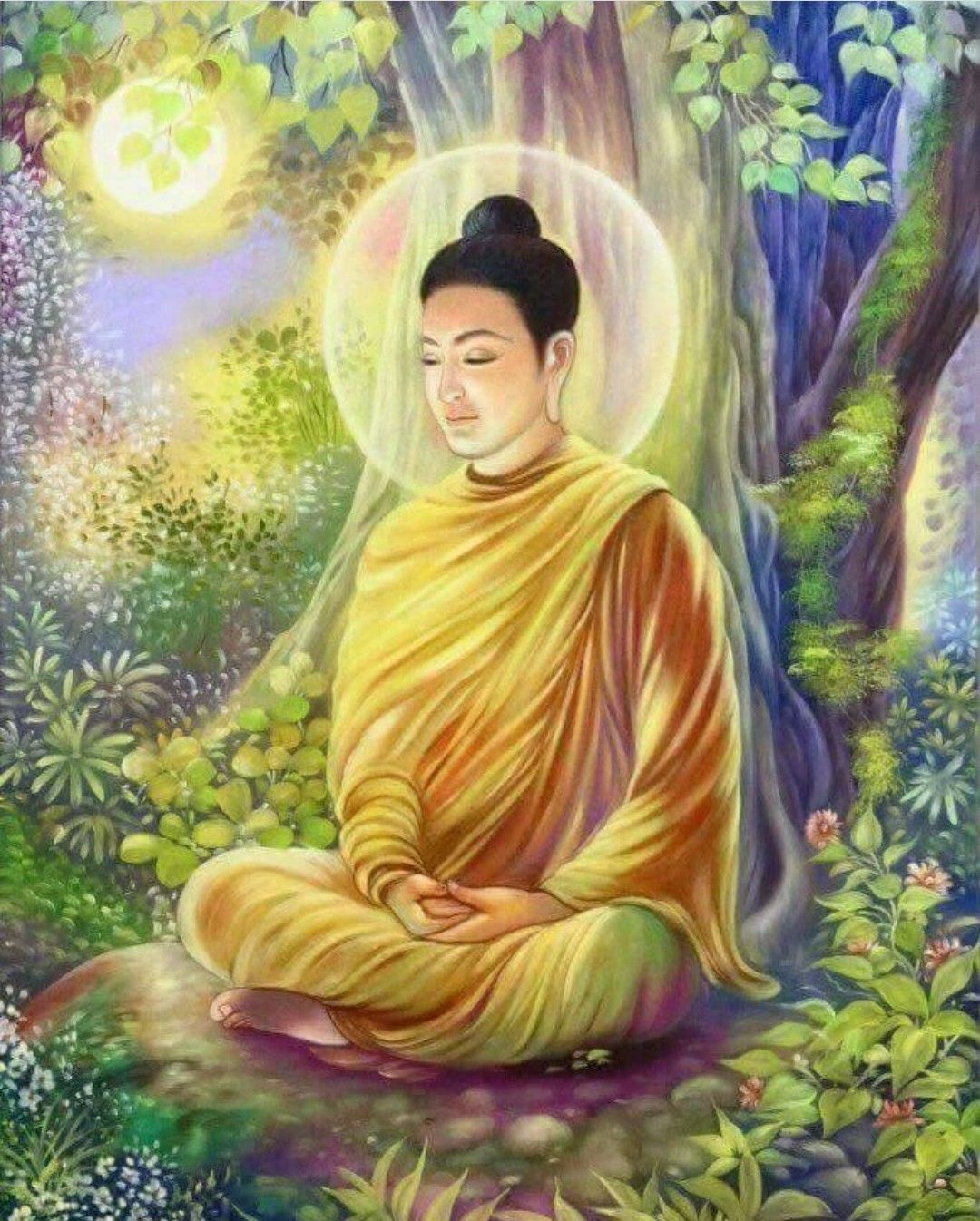-
A well-reflecting mind Comment June 22, 2020 -
The Story of Bahiyadaruciriya Comment June 21, 2020Verse 101: Better than a thousand verses that are senseless and unconnected with the realization of Nibbana, is a single verse, if on hearing it one is calmed.
The Story of Bahiyadaruciriya
While residing at the Jetavana monastery, the Buddha uttered Verse (101) of this book, with reference to Bahiyadaruciriya.
A group of merchants went out to sea in a boat; their boat was wrecked at sea and all, except one, died. The only survivor got hold of a plank and eventually came to land at the port of Supparaka. As he was naked, he tied the plank to his body, got hold of a bowl, and sat in a place where people could see him. Passers-by gave him rice and gruel; some took him for an arahat and talked in praise of him. Some brought clothes for him to wear but he refused, fearing that by wearing clothes, people would give less to him. Besides, because some said that he was an arahat, he mistakenly came to think that he really was one. Thus, because he was a man of wrong views who was wearing a piece of wood as his clothing, he came to be known as Bahiyadaruciriya.
At about this time, Mahabrahma, who had been his friend in one of his previous existences, saw him going astray and felt that it was his duty to put Bahiya on the right path. So, Mahabrahma came to him in the night and said to him “Bahiya, you are not an arahat yet, and what is more, you do not have the qualities that make one an arahat.” Bahiya looked up at Mahabrahma and said, “Yes, I must admit that I am not an arahat, as you have said. I now realize that I have done a great wrong. But is there anyone else in this world now who is an arahat?” Mahabrahma then told him that there lived in Savatthi Gotama Buddha, an arahat, who was perfectly self-enlightened.
Bahiya, realizing the enormity of his guilt, felt very much distressed and ran all the way to Savatthi. Mahabrahma helped him by his supernormal power, so that the whole stretch of one hundred and twenty yojanas was covered in one night. Bahiya found the Buddha going on an alms-round with other bhikkhus and respectfully followed him. He pleaded with the Buddha to teach him the Dhamma, but the Buddha replied that since they were on an alms-round it was not yet time for a religious discourse. And again, Bahiya pleaded, “Venerable Sir, one cannot know the danger to your life or to my life, so please talk to me about the Dhamma.” The Buddha knew that Bahiya had made the journey of one hundred and twenty yojanas in one night, and also that he was overwhelmed with joy at seeing the Buddha. That was why the Buddha did not want to talk about the Dhamma immediately but wanted him to calm down to enable him to take in the Dhamma properly. Still, Bahiya persistently pleaded. So, while standing on the road, the Buddha said to Bahiya, “Bahiya, when you see an object, be conscious of just the visible object; when you hear a sound, be conscious of just the sound; when you smell or taste or touch something, be conscious of just the smell, the taste or the touch; and when you think of anything, be conscious of just the mind-object.”
After hearing the above discourse, Bahiya attained arahatship and he asked permission from the Buddha to join the Order. The Buddha told him to get the robes, the bowl and other requisites of a bhikkhu. On his way to get them, he was gored to death by a cow which was, in fact, an ogress in the likeness of a cow. When the Buddha and the other bhikkhus came out after having had their meal, they found Bahiya lying dead on a rubbish heap. As instructed by the Buddha, the bhikkhus cremated the body of Bahiya and had his bones enshrined in a stupa.
Back at the Jetavana monastery, the Buddha told the bhikkhus that Bahiya had realized Nibbana. He also told them that as far as speed was concerned in attaining Magga Insight (abhinna), Bahiya was the fastest, the best (Etadaggam). The bhikkhus were puzzled by the statement made by the Buddha and they asked him why and when Bahiya became an arahat. To this, the Buddha replied, “Bahiya attained arahatship while he listened to my instructions given to him on the road when we were on the alms-round.” The bhikkhus wondered how one could attain arahatship after listening to just a few sentences of the Dhamma. So, the Buddha told them that the number of words or the length of a speech did not matter if it was beneficial to someone.
Then the Buddha spoke in verse as follows:
Verse 101: Better than a thousand verses that are senseless and unconnected with the realization of Nibbana, is a single verse, if on hearing it one is calmed.
Dhammapada Verse 101
Bahiyadaruciriya VatthuSahassamapi ce gatha
anatthapadasamhita
ekam gathapadam seyyo
yam sutva upasammati.Source: Tipitaka
-
Anger shows us precisely where we are stuck Comment June 19, 2020 -
Process of transformation Comment June 19, 2020 -
Everything that has a beginning has an ending Comment June 19, 2020 -
A monk … who strives in the Buddha’s teachings Comment June 9, 2020 -
The wind cannot overturn a mountain Comment June 6, 2020 -
Yellow robe Comment June 6, 2020 -
The perfect place to awaken Comment June 5, 2020 -
We are a river of sensations, feelings, thoughts, perceptions Comment June 5, 2020It only take a few minutes of meditation to directly realize we are a river of sensations, feelings, thoughts, perceptions. How can we navigate this evanescent river of life wisely? With mindful awareness and love it becomes clear. You can fight against the river of change, or use its wisdom to teach you how to graciously move and create and flow with the full measure of joy and sorrow, gain and loss, praise and blame that make up every human incarnation. ~Jack Kornfield


















